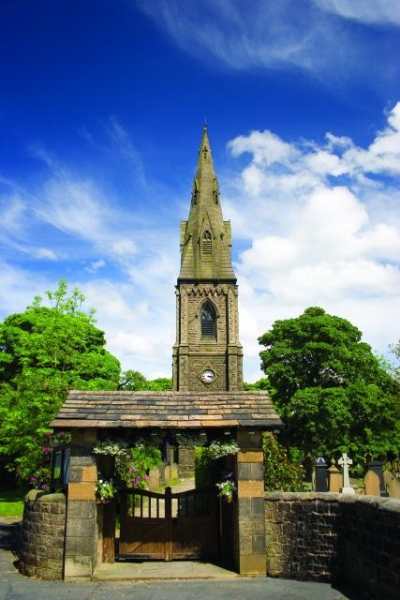A marriage ceremony is a public declaration of your love and commitment to one another, and if you choose a religious ceremony in church you are acknowledging that God cares about your relationship and that you want his blessing and his guidance.
There is now an increasing choice of venues for your wedding, but wherever you live there will be a church near you, at which your family may have shared their joys and celebrated weddings over many generations. By choosing to be married in church you will be following in the footsteps of thousands of people who have recognised the church as a focal point of the community. The doors of the church are open to all who care for you and wish you well; there may be friends and neighbours who you are unable to invite to your reception but who would love to support you.
Who can be married in church?
The normal practice is that one of your should live in the parish of the church you wish to be married at. If you are not sure which is your parish church get in touch with a local vicar and ask. If you want to be married in another church, then you will need to worship at that church regularly for six months before the wedding. Again the best thing to do is to approach the vicar of the church and seek her or his advice. Further advice is available on the Church of England website www.cofe.anglican.org/lifeevents/weddings/index.html
How do I go about it?
Get in touch with your local vicar, to check that the church is free on the date you desire. He or she will probably wish to meet you to get to know you and discuss your plans. Some churches have an office, in which case the parish administrator will be your first point of contact.
What are banns?
Your proposed marriage must be publicly announced beforehand, and the practice for a church wedding is that “Banns” or details of your marriage are read out at the main service on three Sundays in the parish(es) where you both live within three months of your wedding day. This is to ensure that there is no legal reason why you cannot marry one another; such as being too young, already married, or barred from marriage because you are already “related”. If one of you is a foreign national you may need to marry by licence.
What if one of us is divorced?
The teaching of the Church of England is that marriage is for life, but it also recognises that sadly some marriages do fail. If one or both of you have been divorced, then do talk to your vicar; the Church accepts that, in exceptional circumstances, a divorced person may marry in church, when their former spouse is still alive. The important thing is to ask to see your vicar to talk through the options.
What does a church service involve?
The service will usually last between 30 and 50 minutes; as well as the declarations and vows you will make to one another and the exchanging of rings, it will include an introduction, prayers which you might help to choose, and readings which as well as a passage from the Bible may include something appropriate of your choice. There may be hymns, possibly other music, and a short sermon. You can also choose to have either a modern language service, or one in more traditional language. You may want to involve members of your family in the service, perhaps doing a reading or playing music; the best way is to discuss this in the early stages with your vicar.
At the end of the service, or maybe after the formal legalities, you will sign the registers, which will provide evidence that you are married in the sight of the law. You will need to nominate two people to be witnesses.
Can our children take part in the service?
Of course. For example they can be included in the prayers, and be asked to join you for the final blessing.
Marriage Preparation
The church cares first and foremost about you as a couple and your marriage; and for this reason, it is practice within the Church of England that every couple should be offered Marriage Preparation. This will vary from church to church; in some cases it will be a chat with the vicar, in others a day spent with other couples exploring what married life will mean for you; in other words to look beyond the wedding day at this new stage in your relationship. Invariably couples who have taken up this opportunity say how valuable it is.
Practice makes Perfect
Just prior to your wedding you will normally be asked to come to the church to go through the service, get to know where everybody stands and who will do what. The intention is that if you know what to expect you will be less nervous, and more able to enjoy your special day.
Happy Ever After
You will usually come into the church separately, at the end you will leave together, to symbolise that you are now a married couple. However, the Church’s concern for you doesn’t end with the wedding march. The vicar will also be available to help, support and advise you in any time of need. You may want to celebrate future special occasions at the church, such as the baptism of children, or special anniversaries.

